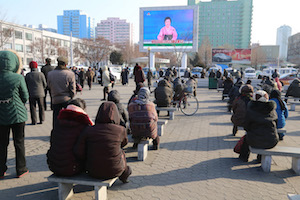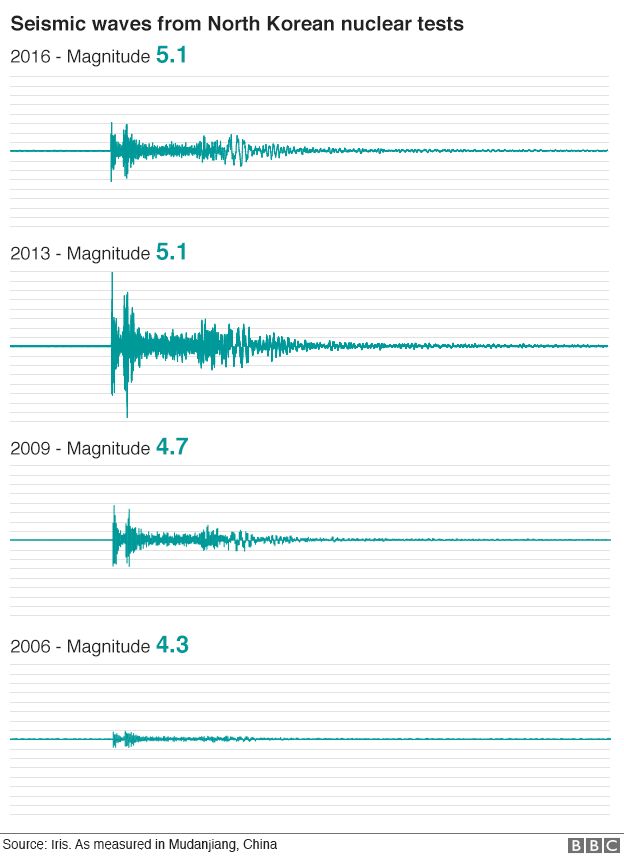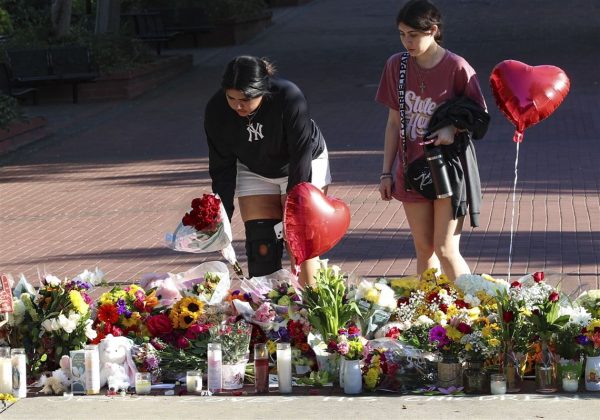North Korea’s Hydrogen Bomb

Credit: Lu Rui/Xinhau/Zuma Press/TNS
North Korea has claimed that they have made a hydrogen bomb.
On Wednesday, January 6, North Korea allegedly tested its newest weapon: a hydrogen bomb. Countries around the world are skeptical, still trying to figure out if North Korea has the weapon it claims. Despite the uncertainty on whether or not the weapon is ‘the real deal,’ this test has been a wake up call to citizens of the United States and across the globe and has set in motion the desire to further investigate this “mystery.”
According to Daily Mail, a popular European newsite, hydrogen bombs have the ability to create a tremendous amount of violent energy “through nuclear fission – the splitting of atoms – followed by fusion – the combining of atoms.” The power, of a hydrogen bomb, is estimated to be 1000 times more powerful than an atomic bomb.
North Korea claims it tested a hydrogen bomb. Here's a look at how one works.https://t.co/cqjB6nYBAj
— The Wall Street Journal (@WSJ) January 9, 2016
In regards to North Korea attempt to build a stronger nuclear defense, Academy Senior Jessica Villa stated, “Honestly, It’s terrifying to think about that. They despise Western culture, which means most countries are potential victims.”
As a result to this test, an earthquake was triggered by the blasts and sent tremors 100 miles away and into China. A BBC article mentioned that The United States Geological Survey recorded a 5.1 magnitude earthquake, however the Comprehensive Test Ban Treaty Organization (CTBTO) said it was a 4.9 quake.The size of the explosion on Wednesday is one of the leading causes of doubt because data collected from the earthquake is all too similar to previous tests performed by North Korea.  In regards to this recent test, president of big-time global security firm, Ploughshares Fund, Joseph Cirincione, stated in a NBC article that “Even a failed hydrogen bomb test would have a yield of 10, 20, 50 kilotons of force. This is a 6-7 kiloton yield, smaller than the last test.”
In regards to this recent test, president of big-time global security firm, Ploughshares Fund, Joseph Cirincione, stated in a NBC article that “Even a failed hydrogen bomb test would have a yield of 10, 20, 50 kilotons of force. This is a 6-7 kiloton yield, smaller than the last test.” /cdn0.vox-cdn.com/uploads/chorus_asset/file/5882191/NorthKoreaYeld.0.gif)
The author of this NBC article, Robert Windrem, wrote “experts already think it’s more likely the event was just a blast from the past.” Even though there is strong data backing up the speculation, there is still reason to believe that North Korea is trying to build a hydrogen bomb.
North Korea made a chilling statement after testing the bomb, calling out the United States as: “A gang of cruel robbers which has worked hard to bring even a nuclear disaster to the DPRK (Democratic People’s Republic of Korea).”
Their comments about the United States did not stop there.
They followed up by stating that the U.S. is not satisfied with the ,”political isolation, economic blockade and military pressure,” forced upon the DPRK because, “it has differing ideology and social system and refuses to yield to the former’s ambition for aggression.” They then claimed that the worlds biggest “hotspot” for a potential nuclear war is the Korean Peninsula.
100,000 rally in Pyongyang in show of support for North Korea's 'H-bomb test' https://t.co/0NAiE6bKEm pic.twitter.com/uIGoya026C
— ITV News (@itvnews) January 8, 2016
To them, this “H-bomb of justice” is “the legitimate right of a sovereign state for self-defense and a very just step no one can slander.”
Villa also stated, “They have agreed with the UN to not expand it’s atomic weaponry, but I doubt North Korea is scared of breaking a promise when they’re sitting on weapons of mass destruction. However, what can we do to prevent them from making these weapons? We can’t make wild accusations and kick the hornet’s nest even more, and we can’t send anyone in to monitor them because if spies are uncovered, they will go to war. We’re stuck between a rock and a hard place.”
Many other countries have responded to differently to this test. South Korea played a mix of K-Pop and propaganda over the border and, according to Bloomberg Business, have also pledged to work with China to prevent North Korea’s nukes.
Fox News said that China is North Korea’s “only major ally and its biggest aid provider,” thus U.S. Secretary of State, John Kerry has pushed for China “to end ‘business as usual’ with North Korea.”
On a more global level, an emergency session of the U.N. Security Council was called. During the emergency session, United States Ambassador to the United Nations, Samantha Power, stated that “the UN Security Council has key role to play” by placing new sanctions on North Korea.
Full statement from @AmbassadorPower on #NorthKorea nuclear test: https://t.co/Dv3vFzJ4TG pic.twitter.com/yafrmFzM0C
— U.S. Mission to the UN (@USUN) January 6, 2016

Jeanine Ramirez is an Academy senior, fourth-year journalist and the News Editor for the Achona. Following her interests in the social sciences, Jeanine...







